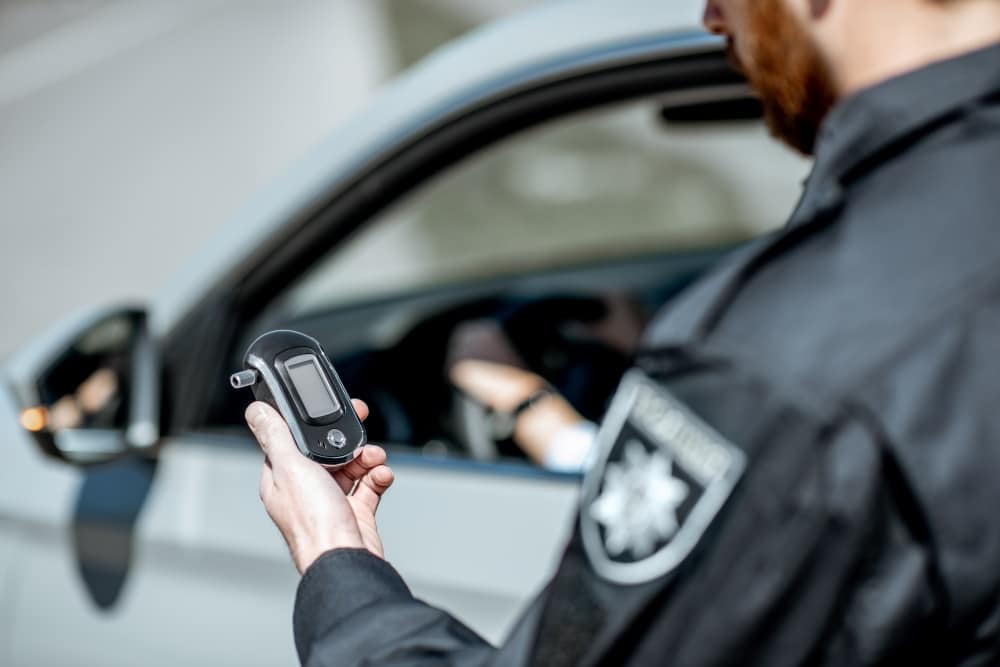- Home
- THE FIRM+
- Criminal Defense+
- CASE RESULTS
- AREAS WE SERVE+
- FAQ’s
- Blog
- Contact
AZHARI LLC BLOG
Jul. 5 2016
WHAT IS THE FELONY PROCEDURE IN ILLINOIS?

Posted By: Sami Azhari
Category:
There are principally three types of crimes in Illinois. The most minor violation is called a petty offense. This type of violation can be punished only by the imposition of a fine. The next level is a misdemeanor. In Illinois, these can range from a Class C which carries a maximum of 30 days in jail and a $1,500 fine to a Class A with a range of up to 364 days in jail and a $2,500 fine. The third type of crime is called a felony. A felony is a serious crime that has a possible prison term of 1 year or more. The lowest level felony in Illinois is a Class 4 felony. The most serious felony in Illinois is a Class X, which may have a prison term of up to 60 years. While there are significant differences in penalties, the process for all felony charges is the same.
The Arrest
Following an arrest, the police agency involved must contact the State’s Attorney’s Felony Review Office. A police officer does not have the inherent authority to automatically charge someone with a felony. That decision rests solely with the State’s Attorney. The Felony Review office runs 24 hours a day 7 days a week. The State’s Attorney gathers information from the officer regarding the evidence in the case and the defendant’s criminal history. In some cases the Attorney conducts an interview of the defendant. After conducting his own review of the case and the evidence the State’s Attorney then decides if felony charges are proper. If the State’s Attorney believes the evidence is insufficient or the circumstances do not call for a felony, and felony charges are rejected. If the State’s Attorney rejects felony charges, the police do have the authority to still file misdemeanor charges. These charges are sent to court and the defendant is processed by the police for the felony. At this point the charges are outlined in a document called an information. At this point the defendant is held for a bond hearing.
The Bond Hearing
Constitutional safeguards guarantee that the rights of the accused will afford that individual to be brought before a judge within 72 hours of the arrest in order for a bond hearing to be held. The bond court judge hears the charges and some basic facts related to the case. The bond court judge is also provided with the criminal history of the defendant. Attorneys for the defendant make a presentation on his behalf. This generally relates to elements of the person’s life. These can include: age, education, family situation, work history and resources for posting bond. After hearing from both sides the judge decides the terms of the defendant’s release, whether it is by personal recognizance (I-Bond) or by posting with the court an amount of money (D-Bond). After the bond is set, the defendant only needs to post 10% of the mandated amount.
The Preliminary Hearing
After the arrest and bond hearing, the case is usually scheduled for a preliminary hearing. Although a hearing has been scheduled, it often does not take place, since the case is likely to be indicted by a grand jury. A judge hears evidence to determine whether a crime was committed, and whether there is reason to believe the person accused committed the crime. For this purpose the State presents witnesses, and the defense has the right to ask questions of the State’s witnesses. These witnesses provide evidence to the judge on the two issues above. The standard of proof is much lower than the “beyond a reasonable doubt” that exists at a trial, the question before the judge at a preliminary hearing is simply whether it is likely true that the defendant committed a crime. If the defendant wins the preliminary hearing, the judge determines that there is a finding of no probable cause and the case is usually over, but not always. Even if the defendant loses the hearing, an experienced lawyer can bring out very important evidence. The chance to ask the police officers questions while they are under oath is useful to the defense. Through the preliminary hearing, the lawyer has the opportunity to put the complaining witnesses and officers “on paper” and impeach them at trial if their testimony is inconsistent.
The Indictment
Most cases will be superseded by Indictment. Which means instead of having a preliminary hearing, the state can charge a person with a felony by presenting evidence to a Grand Jury. This consists of 18 people from the community. The State’s Attorney presents evidence to these 18 people. The proceedings are conducted in secret, and the defense does not get the chance to cross examine the witnesses, nor does the defendant have the right to confront his accuser. Most felony cases actually proceed in this fashion. The Grand Jury looks at the same two issues as a judge at a preliminary hearing, whether a crime was committed, and whether there is reason to believe the person accused committed the crime. If after the Grand Jury hears the evidence and the jurors agree there was a crime, likely committed by a particular individual, an indictment is issued. This is the document that officially accuses the person of a crime. In this situation there will not be a preliminary hearing. If the defendant is not in custody, or currently on bond, a warrant will be issued for his arrest. Additionally, the State’s Attorney can bring the indictment in the cases where charges were dropped during the preliminary hearing.
Assignment to Trial Court
When someone is arrested and charged with a felony, if there has been a finding of probable cause at a preliminary hearing or an indictment, the case is then typically sent to the Chief Judge of the county. The Chief Judge then with a proscribed random process assigns the case to another judge in the county. This judge is the one who will be looking after the case as it now progresses toward one of three outcomes: a plea, a dismissal or a trial.
Arraignment
After assignment to a trial court, the defendant is formally admonished of the charges against him. A defendant can require that the judge reads the indictment in open court, but this formality it usually waived or given up through a waiver of the formal reading (asking the judge not to recite verbatim all the charges brought against the defendant). This is done as a courtesy to the court to save time primarily because the defendant and defense attorney already know what the charges are since a copy of the charging document (the indictment if from a grand jury or an information if from a preliminary hearing) is given to the defendant or his lawyer. It is at this point that a formal plea of not guilty is entered in open court.
Discovery
This is the process by which the state must provide to the accused the evidence that it has against him. For felony cases the requirements are basically set up by way of a case from the United States Supreme Court. The State is required to provide certain specific types of evidence in its possession. Though all the evidence in the case is important, the specific evidence that the state must provide that has large implications is if the state has any evidence that might show the defendant is not guilty. There are penalties against the state for failing to reveal this type of evidence. Gathering this evidence is extremely important to the defense.
Motions
A Motion is a request by an attorney asking the judge to order that something be done. Some motions, if successful, such as Motion to Quash Arrest, Motion to Suppress Evidence, Motion to Suppress Statement, can result in the case being dismissed. These motions are part of the pre-trial process. The outcome of these requests to a judge to issue an order can have a large impact on the case. As mentioned above, certain motions can result in a dismissal, and some motions, though not resulting in a dismissal, can provide the defense with leverage to have a more favorable plea offer.
Plea Agreement
This is when the State’s Attorney, defense attorney and defendant agree what penalty will be imposed if the defendant pleads guilty to the crime. It is important to note that such an agreement required the approval of the defendant. These penalties are usually based upon the offense and the defendant’s background both criminal and social. Often the trial judge also participates in the agreement through a 402 conference. The name comes from Illinois Supreme Court Rule 402, which provides for a judge to be part of a plea negotiation. This must be agreed to in open court by the defendant, as the judge will likely learn things about the defendant that they would not have learned any other way. If the judge participates because of a 402 conference, then the penalty will be as agreed in the conference. If the judge was not part of the negotiations, then he is not bound by the agreement between the State’s Attorney and defense attorney and he may impose a different penalty than agreed by the State and defense. Many cases are finished in this fashion, and an experienced lawyer knows what the usual penalties are for specific situations.
Trial
In the event that there is no agreement in return for a plea, (or the case is not dismissed by way of a motion) then a trial is held, and the defendant maintains his plea of not guilty. At trial the state presents evidence to either a judge (bench trial) or a jury. A jury is composed of twelve citizens chosen by the state and the defense through a process of voir dire. These twelve people decide, by unanimous vote if the defendant is guilty or not guilty of the charges. The state must prove the defendant’s guilt beyond a reasonable doubt. If this does not happen, the defendant is found not guilty and the case is over. If it does happen, then the defendant will have a penalty imposed by the judge who presided at the trial.
Charged with a Felony in Illinois? Understand the Legal Process and Defend Your Rights
If you’re facing felony charges in Illinois, it’s crucial to understand the complex legal processes that will determine the course of your case.
Sami is experienced at defending criminal and traffic matters. For assistance with a criminal matter, contact Sami at (312) 626-2871.
























































